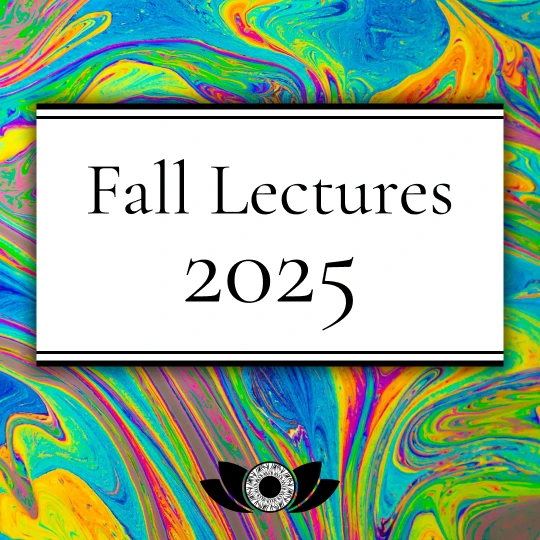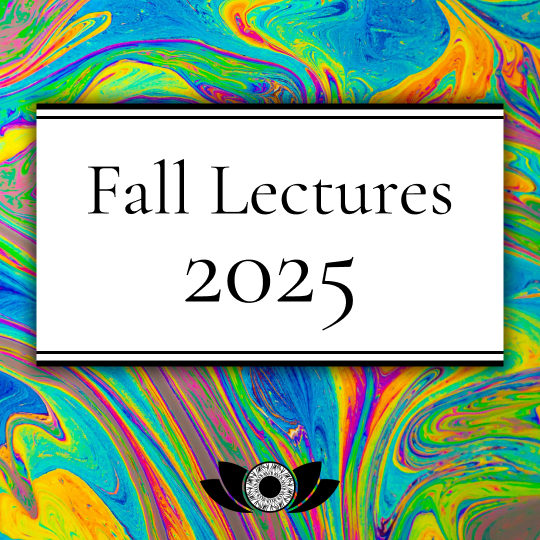Switzerland is a hub for psychedelic research. PROZ is a student organization that makes academic research on psychedelics accessible to both students and the general public.


Get a chance to ask Rick Doblin your question! The talk will be broadcasted over Zoom in a lecture hall at the University of Zürich with a live Q&A at the end. For more information see below.
Further events for this semester will be announced!


Prof. Dr. med. Torsten Passie, is a German psychiatrist & psychotherapist, professor at Hannover Medical School. He holds degrees in philosophy, sociology and medicine, obtained his habilitation in 2007 on altered states of consciousness. Passie has led research on psychedelics (LSD, psilocybin, MDMA, ketamine etc.), psycholytic/entheogenic therapy, and has published around 50 scientific articles and several books.


Dr. Ido Hartogsohn is a scholar, writer, and professor in the Science, Technology and Society Program at Bar Ilan University. He researches the history, sociology and culture of psychedelics, especially how “set and setting” — the context of use — shapes psychedelic experiences. His book American Trip: Set, Setting, and the Psychedelic Experience in the Twentieth Century (2020) examines how mid-20th-century American culture influenced both the use of psychedelics and their effects.


Lydia Belinger will present preliminary results from the study “Does serotonin system stimulation increase pro-social behavior? - A comparative pharmacological neuroscientific study in healthy humans”. This double-blind, placebo-controlled trial investigates whether stimulation of the serotonin system via psilocybin and MDMA, compared to the non-serotonergic substance methylphenidate, produces lasting changes in social behavior in healthy adults. A total of 120 participants were assessed using a comprehensive battery of questionnaires and behavioral tasks measuring different aspects of prosocial behavior, including empathy, compassion, pro-social voting behaviour, utilitarianism, altruism, and social-network quality. In addition to presenting preliminary findings, the talk will provide a general introduction to social cognition as a potential mechanism of action underlying the therapeutic effects of psychedelics. Subjective substance effects and challenges related to maintaining blinding in psychedelic research will also be discussed.


Established by the 1971 United Nations (UN) Convention on Psychotropic Substances, the prohibition of the recreational use of psychedelics (lysergic acid diethylamide [LSD], psilocybin, N,N-dimethyltryptamine [N,N-DMT], and mescaline) has two premises. First, recreational use poses a serious threat to public health because psychedelics are highly liable to addiction and abuse. Second, psychedelics have only limited scientific and medical uses. In this talk, based on a recently co-authored article, they will raise the following questions: are these premises true such that prohibition is justified? If not, are decriminalization and legal regulation justified alternatives? Drawing on interdisciplinary research, they will show that the premises of prohibition are false. Psychedelics are not highly liable to addiction or abuse, and so recreational use is not a serious threat to public health. Moreover, the uses of psychedelics exceed medical and scientific uses. Prohibition, they conclude, is therefore unjustified. They will then show that decriminalization is based on the same false premises as prohibition, that legal regulation is based on weaker versions of these premises, and thus that both alternatives entail unjustified restrictions on recreational users. Finally, they will present a fourth approach: communalization. This entails that all adults have the freedom to recreationally use psychedelics without restrictions and that communities provide harm reduction and benefit enhancement services to support this freedom.


For the first time ever, PROZ is organizing a workshop on psychedelic therapy hosted by a MAPS-certified Psychiatrist Dr. Julia King-Olivier. The workshop explores the use of a modified format of the Meaning-Making Intervention developed by Virginia Lee at the McGill School of Nursing (references below) as a powerful tool for structuring and deepening the third preparatory session in psychedelic-assisted therapy. The workshop aims to be experiential and integrative, and will be set-up just as an actual preparatory session. After a brief introduction, participants will be invited to form groups of three (two therapists one patient) and enter into a co-created therapeutic field shaped by music (playlist), co-therapy presence, and somatic-emotional attunement. Through practicing noble listening, silent witnessing, and reflective resonance, participants experience what it means to hold and be held—before any medicine is introduced.


This talk by Professor of American Literature and Culture Agnieszka Soltysik Monnet (UNIL) will explore the relationship between women and psychedelics through three main approaches. First of all, in order to make our cultural memory more complete, we will explore the role of women in psychedelic history. For example, few people know that the lab assistant who accompanied Albert Hoffman home by bicycle on that historical April day in Basel in 1943 when he ingested LSD deliberately for the first time was a 20-year-old female lab assistant. Suzi Ramstein became two months later the first woman to deliberately take LSD to explore its effects and was instrumental in fine-tuning our understanding of appropriate dosage. The presentation will also explore the more profound insights that can emerge from an encounter of feminism and psychedelic history and will end with a look at the place of gender in psychedelic-assisted therapy and personal-growth culture.

PROZ stands for Psychedelic Research Organization of Zurich. We are a student association dedicated to exploring the scientific and philosophic framework surrounding psychedelics.
Our interdisciplinary team includes students from fields like psychology, pharmacology, biology, physics, and computer sciences; all united by our academic interest in psychedelics.
Our goal is to raise awareness of the potential benefits and risks associated with psychedelics, as well as their clinical and psychotherapeutic applications. We also strive for open science, making research accessible to everyone, and creating opportunities for dialogue and networking.
We organize a variety of events, including talks, discussions, and informal events, where experts and members can share and discuss their knowledge. If possible, we record the lectures and upload them on YouTube and our website.
Founded in 2022, we are a young organisation. Nevertheless, we have an Instagram account where we post useful information about our activities and interesting information about psychedelics in general. Also, in fall 2023 we launched our first public talk series and could not have been happier with the amount of people showing up. As we become more experienced with organising events, we hope to offer a wide range of activities for students, professors, researchers and the general public interested in psychedelics. All our upcoming events will be registered on this website.
We regularly organize Events in Zurich. As the University of Zurich is largely funded by taxpayers, we think it is important to give the public something back. With our free talks, discussions and other events we hope to allow people who are researching psychedelics to share their knowledge with the public and interested students from all kinds of academic backgrounds. This means that for all of our events the only thing you need is an open schedule and an open mind.
Open Science is a movement to make scientific research accessible to all levels of society, amateur or professional. This includes things such as making academic papers freely accessible, publishing research data and preregistering studies. But the language of science is often very domain specific and for non-specialists it is difficult to read academic papers. Our goal is to make this academic knowledge more accessible for the public and students from different backgrounds.
Psychedelic science is an interesting and very interdisciplinary field. Researchers from biology, psychology, neuroscience, philosophy and many more fields study these mysterious substances. Thus interdisciplinary collaboration is an important aspect for psychedelic science. We hope that our events and platforms offer a space for future and current researchers to connect and learn about a broad range of approaches. We hope to combine the rigorous scientific efforts from STEM fields with the more open and broad ideas of the humanities and whatever disciplines lie in between.


The ALPS Foundation is a Swiss non-profit organization dedicated to educating professionals and the general public on evidence-based psychedelic research and therapy. Supporting community building around these topics, and paving the way for therapeutic psychedelic treatments provided in a safe, legal, and accessible manner.
Other than collaborating in different Swiss psychedelic research projects as well as in the access facilitation to safe and legal psychedelic treatments for patients in need, the ALPS Foundation also organizes two highly successful academic events on psychedelic science in Switzerland. Check out the website to learn more about those Events.

The Swiss Psychedelic Student Network brings together all university student associations dedicated to psychedelic sciences at a national level.
While their ambition is rooted locally, their perspective is international, providing students interested in psychedelics with an environment to grow and learn. Through various events, they aim to disseminate evidence-based knowledge about psychedelics, including medical applications, fundamental biological research, and social perspectives.
Sharing the same goals, the ALPS Foundation and the Swiss Psychedelic Student Network have created the ALPS Student Board, a team composed of one or two representatives from each student association. This board facilitates communication and collaboration between these entities, to coordinate educational programs and promote psychedelic science communication at a national scale.







Psychedelics are all about strengthening existing connections and forming new ones. Tell your friends about our association and our projects, take them with you and make them bring their friends too! Our events are great opportunities to make even more friends and to find out about interesting frontiers in psychedelic science and possible master theses, PHD's, internships and jobs that are up for grabs.
As a non-profit Organization we do our very best to make every event as free as possible. To achieve this, we invite organizations to join us as sponsors. Your support allows us to offer these enlightening events without any cost barriers, reaching a broader audience and fostering a greater understanding of psychedelics. As a valued sponsor, your organization's name and logo will be prominently featured at each event, demonstrating your commitment to advancing knowledge and awareness.
You like what we do and want to play a part in it? We are always excited to welcome new members in our organization! Just send us a DM on Instagram or an E-Mail and we'll schedule a meeting.
You are fascinated by the world of psychedelics and eager to share your insights with an equally enthusiastic crowd? Feel free to contact us and we will do our best to make your talk happen!
In our WhatsApp community chat you will be always up to date on the upcoming events and major developments of the academic field of psychedelic science. Join our:
If you have an elaborate question or would like to collaborate with us, send us an Email:
Another way to stay informed is following our Instagram account. Get updates on upcoming Events and useful information conveniently in your Instagram Feed.